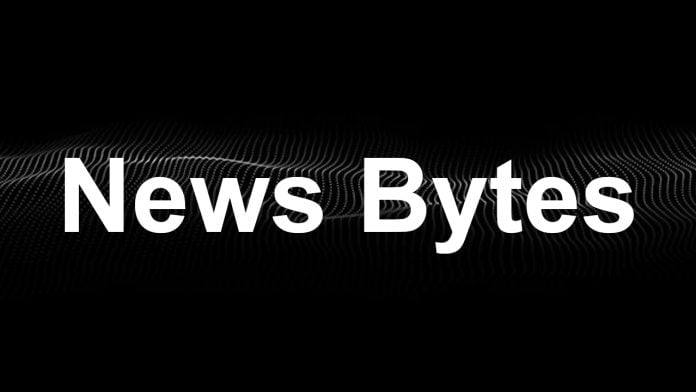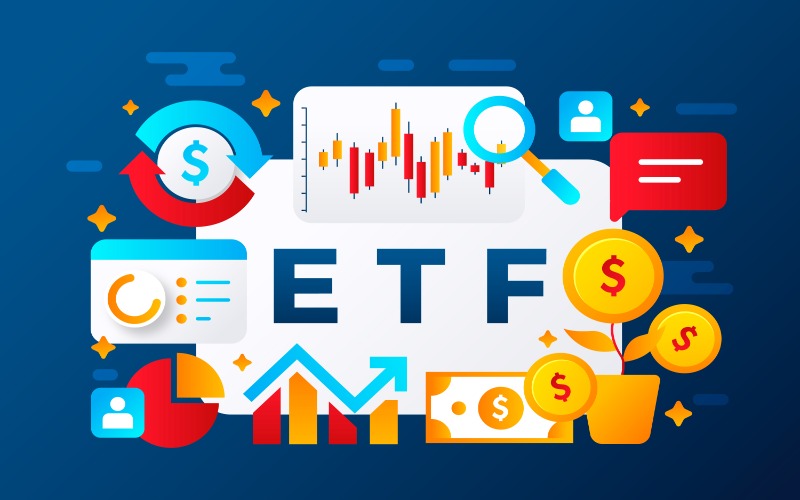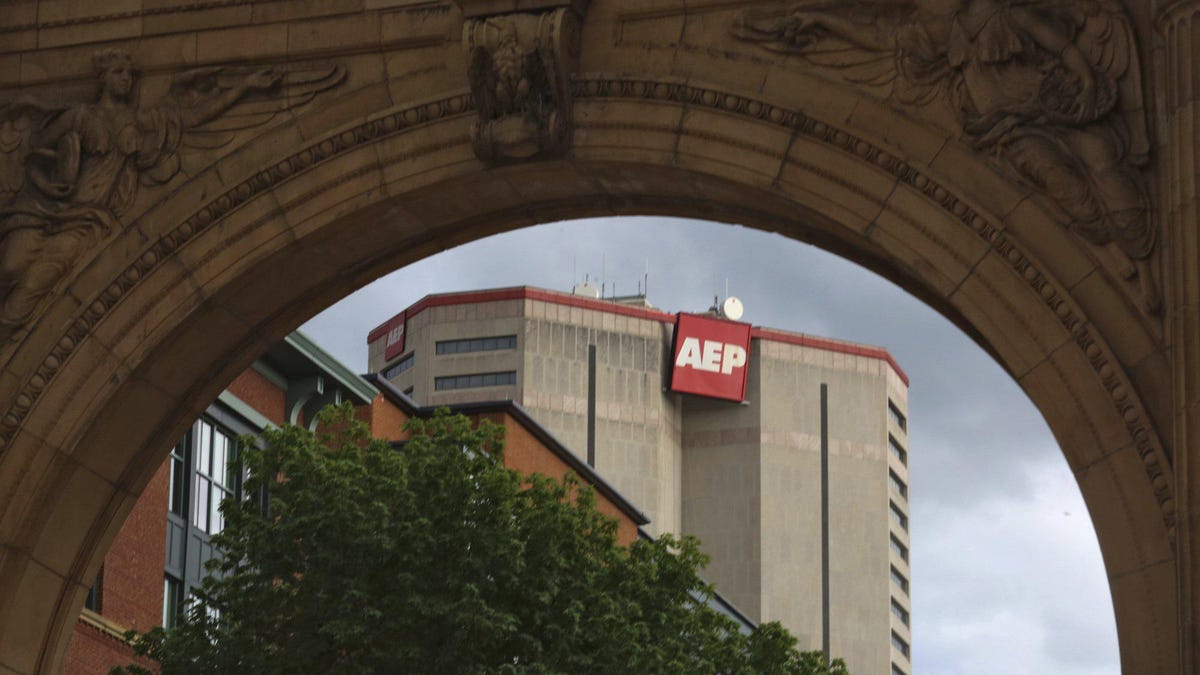Crypto
Cryptocurrency Brings Disruption To Bankruptcy Courts—What Parties Can Expect And The Open Issues Still To Be Resolved (Part Two) – Insolvency/Bankruptcy – United States

In this second part of our blog exploring the various issues
courts need to address in applying the Bankruptcy Code to
cryptocurrency, we expand upon our roadmap. In
part one, we addressed whether cryptocurrency constitutes
property of the estate, the impacts of cryptocurrency’s
fluctuating valuation, issues of perfection, and the effects of
cryptocurrency on debtor-in-possession financing. In this part two,
we explore preferential transfers of cryptocurrency, whether
self-executing smart contracts would violate the automatic stay,
and how confusing regulatory guidelines negatively impact
bankruptcy proceedings, including plan feasibility.
Preferential Transfers
Pursuant to section 547(a) of the Bankruptcy Code, a
debtor-in-possession (or trustee) can avoid a transfer of the
debtor’s property to a creditor made in the 90-days before
filing the petition if, among other things, the creditor received
more than it would have in a Chapter 7 liquidation proceeding.
Notably, such a transfer can only be avoided if the thing
transferred was the debtor’s property. When cryptocurrency is
valued and whether cryptocurrency is considered to be property of
the estate can impact preference liability.
Perhaps the first question to arise in cryptocurrency preference
litigation is whether the transferred cryptocurrency is property of
the estate. If, as in the Chapter 11 bankruptcy case of Celsius
Network LLC and its affiliates, the cryptocurrency withdrawn by the
accountholder during the ninety days prior to the bankruptcy is
determined to be property of the estate, and not the
accountholder’s property, a preferential transfer claim could
be asserted. If, however, the cryptocurrency was property of the
accountholder, for instance if it was held in a wallet to which
only the accountholder had exclusive rights, no preference
liability would attach to the withdrawal of the cryptocurrency.
Assuming that a preferential transfer claim lies, the court must
decide how to value the preferential transfer. Section 550 of the
Bankruptcy Code allows a debtor-in-possession to recover “the
property transferred, or, if the court so orders, the value of such
property.”1 This
gives the debtor-in-possession wide latitude in asserting a
preference claim. For instance, the debtor-in-possession could take
the position that the cryptocurrency is a commodity, in which case
a claim could be asserted to recover the cryptocurrency itself,
which, by the end of the case, may be worth a much more than it was
at the time of the transfer, with any gain accruing to the
estate’s benefit.2 In contrast, the party receiving the
transferred cryptocurrency would likely take the position that the
cryptocurrency is currency, in which case a claim would be limited
to the value of the cryptocurrency at the time of the transfer.3
The proper valuation methodology has not to date been
definitively addressed by the courts. Perhaps the closest a court
has come to deciding that issue was in Hashfast Techs. LLC v.
Lowe,4 where the
trustee claimed that a payment of 3,000 bitcoins to a supplier was
a preferential transfer. The bitcoin was worth approximately
$360,000 at the time of the transfer but was worth approximately
$1.2 million when the trustee asserted the preferential transfer
claim. The trustee argued that the payment to the supplier was
intended to be a transfer of bitcoins and not a payment of
$360,000, and that the supplier was required to pay 3,000 bitcoins
to the estate, notwithstanding the substantial increase in value
(and the resulting windfall to the estate). Ultimately, the court
refused to decide whether bitcoin is either currency or commodities
and held that “[i]f and when the [trustee] prevails and avoids
the subject transfer of bitcoin to defendant, the court will decide
whether, under 11 U.S.C. § 550(a), he may recover the bitcoin
(property) transferred or their value, and if the latter, valued as
of what date.”5
The changing value of cryptocurrency will also impact the
question of whether the creditor received more than it would have
in a Chapter 7 liquidation proceeding.6 While the value of preferential
transfers are determined at the time of the transfer,7 the analysis of
whether such transfer made the creditor better off than in a
Chapter 7 liquidation is determined at the time of a hypothetical
distribution, which means, practically, at the time of the
petition.8 Therefore,
if a customer withdraws cryptocurrency from a platform during the
90-day preference period, and the cryptocurrency experiences a
decrease in value during those 90 days, that customer could
arguably be liable for a preferential transfer because the
withdrawn cryptocurrency was worth more at the time of the transfer
than at the time of the petition.
Presently unanswered is whether the safe-harbor provisions
provided for in section 546(e) of the Bankruptcy Code shield
cryptocurrency transfers from preferential transfer attack.
Pursuant to section 546(e), a debtor-in-possession cannot avoid as
a preference a margin payment or settlement payment made to
“financial participant . . . in connection with a securities
contract . . . commodity contract . . . [or] forward contract . . .
that is made before the commencement of the case.” If the
court determines that cryptocurrency is a security or commodity,
and that the transfers were made in connection with forward or
commodities contracts, then section 546(e) may shield those
transfers from attack as preferential.
Violations of the Automatic Stay and Smart Contracts
The self-executing nature of smart contracts may raise automatic
stay concerns. The automatic stay arises upon the filing of a
bankruptcy petition, and in general, prevents creditors and other
parties from continuing their collection efforts against the
debtor.9 Of relevance
to smart contracts, section 362(a)(3) of the Bankruptcy Code states
that the stay applies to “any act” to obtain possession
of or control of property of the estate. Very recently, in
Chicago v. Fulton, the United Stated Supreme Court held
that section 362(a)(3) prevented any “affirmative act that
would alter the status quo at the time of the bankruptcy
petition.”10
Prior to Fulton, a bankruptcy court in Arkansas
examined an analogous issue in Hampton v. Yam’s Choice Plus
Autos, Inc. (In re Hampton).11 In Hampton, the court
adjudicated whether a device that automatically locked the debtor
out of her car violated the automatic stay when it disabled
function of the car’s engine postpetition. The device relied on
a code—if the debtor paid, the creditor sent her a code,
which she would then input, and this prevented the device from
automatically disabling the car’s starter. In this instance,
the court found a violation of the automatic stay.12
Based on current case law, it remains unclear whether a smart
contract, operating automatically, would violate the automatic
stay. For example, if a smart contract is based on a DeFi loan, and
it automatically executes postpetition to transfer to the lender
assets of the estate, a court may find a violation of the automatic
stay.
Hampton would suggest that such actions would be a
violation—but two issues caution against relying on
Hampton as a clear bellwether. First, Hampton was
decided pre-Fulton and it remains unclear whether, and to
what extent, the Supreme Court’s holding in Fulton
would change the outcome of Hampton. Second, a potentially
key factual distinction exists: the device in Hampton
required the creditor to give the debtor a code to prevent the
disabling of the car, but smart contracts can be programmed to
automatically execute postpetition without any further action by
the parties. If a smart contract is found to violate the automatic
stay, the next question is whether such a violation is willful,
meaning that a court can impose monetary penalties, including
potentially punitive damages.13
Note that even if a smart contract is found not to violate the
automatic stay, it does not mean that a creditor can retain the
property. Section 542 of the Bankruptcy Code requires those in
possession of estate property to turnover the property to the
estate. The estate is created at the time of the filing of the
petition, and therefore, any smart contract that executes
postpetition would theoretically concern estate property and be
subject to turnover. Unfortunately, ambiguities arise even in this
statute, as section 542 contains a good-faith exemption to the
turnover mandate if the recipient is not aware of bankruptcy filing
and transfers the assets.14 Thus, the turnover mandate may be
difficult to apply to non-debtor parties to smart contracts who
program the contract ahead of time with the knowledge that such a
contract may execute after a bankruptcy petition but with no actual
knowledge of such petition having been filed.
Regulatory Confusion
The regulatory world has no uniform approach to cryptocurrency.
Both the Securities and Exchange Commission (SEC) and the
Commodities Future Trading Commission (CFTC), perhaps in part
spurred by executive pressure, recently advanced heavier regulatory
oversight of cryptocurrency.15 The two agencies also share
jurisdiction; one agency asserting authority to regulate
cryptocurrency does not preclude the other from doing so.16 Other agencies,
such as the Department of the Treasury’s Office of Foreign
Assets Control (OFAC) and Financial Crimes Enforcement Network
(FinCen), have also asserted the jurisdiction to regulate
cryptocurrency.17
The result is regulatory confusion for market participants, both
because of the sheer number of agencies asserting jurisdiction and
the fact that individual agencies can sometimes issue confusing and
ill-defined guidelines.
For instance, the SEC applies the Howey test, developed
in the 1940s, to determine whether a specific cryptocurrency is a
security.18
Unfortunately, the SEC has stated that whether a specific
cryptocurrency is a security can change overtime, and recently
announced even more cryptocurrencies that they believe meet
Howey’s definition of a security via their lawsuits
with crypto exchanges Binance.US and Coinbase.19
The regulatory confusion clouding cryptocurrency has directly
impacted bankruptcy proceedings. One recent case study offers a
glimpse into that disconcerting influence. In 2022, crypto exchange
Voyager Digital Holdings Ltd. filed for Chapter 11 bankruptcy.
Another major crypto exchange, Binance.US, entered into an
agreement with Voyager to acquire its assets—valued at around
$1 billion. The SEC, the New York Department of Financial Services
(NYDFS), and the New York Attorney General all filed sale
objections in Voyager’s bankruptcy proceedings, arguing that if
Voyager’s crypto assets constitute securities, then
Binance.US’s rebalancing and redistribution of these assets to
its account holders would be an “unregistered offer, sale or
delivery after sale of securities” in violation of Section 5
of the Securities Act.20 The NYDFS also alleged that the
agreement “unfairly discriminates” against New York
citizens by subordinating their recovery of diminished assets in
favor of Voyager’s creditors—as well as foreclosing the
option to recover crypto rather than liquidated assets.21
SEC trial counsel noted that, “regulatory actions, whether
involving Voyager, Binance.US or both, could render the
transactions in the plan impossible to consummate, thus making the
plan unfeasible.”22 In April 2023, Binance.US sent
Voyager a legal notice canceling the prospective transaction,
writing that “the hostile and uncertain regulatory climate in
the United States has introduced an unpredictable operating
environment impacting the entire American business
community.”23
The SEC’s desire towards regulating cryptocurrency as
securities appears to be growing. On August 15, 2023, the SEC
settled for $24 million its claims against Bittrex, which included
violations of Section 5 of the Securities Act.24 Upon the settlement, the director
of the SEC stated that Bittrex “worked with token issuers . .
. in an effort to evade the federal securities law. They
failed.”25
Uncertainty combined with aggressive enforcement leaves
cryptocurrency entities in an uncertain and precarious
position.
Plan Feasibility
The Voyager case also highlights issues with plan feasibility in
Chapter 11. In Voyager, the SEC objected to plan feasibility on the
basis that one known digital asset of Voyager was a security, and
therefore, the purchaser should register as a securities dealer.26 Although the court
overruled the SEC’s objection, as noted above, Binance.US
ultimately withdrew its purchase offer, placing blame on the
overall regulatory climate.27 As regulations remain uncertain,
and government authorities have shown a willingness to assert
themselves into the process of reorganization, debtors who file for
bankruptcy will have to brace for new or unforeseen objections to
an otherwise confirmable plan.
Conclusion
Cryptocurrency has been seen by some as a disruptive force in
finance. As the above issues show, it also appears to be a
disruptive force in bankruptcy cases. Debtors and creditors alike
will have to weather the disruption as best they can while the
courts continue to grapple with the many open issues raised by
cryptocurrencies.
Footnotes
1. See 11
U.S.C. § 550(a).
2. This position would
arguably be consistent with cases interpreting section 550(a) of
the Bankruptcy Code that have held that the estate is entitled to
recover the value of the property when value has appreciated
subsequent to the transfer. See, e.g., In re Am. Way Serv.
Corp., 229 B.R. 496, 531 (Bankr. S.D. Fla. 1999) (noting that
when the value of the transferred property has appreciated,
“the trustee is entitled to recover the property itself, or
the value of the property at the time of
judgment.”).
3. Mary E. Magginis,
Money for Nothing: The Treatment of Bitcoin in Section 550
Recovery Actions, 20 U. Pa. J. Bus. L. 485, 516
(2017).
4. No. 14-30725DM
(Bankr. N.D. Cal. Feb. 22, 2016),
5. Order on Motion for
Partial Summary Judgment at 1-2, Hashfast Techs. LLC v.
Lowe, Adv. No. 15-3011DM (Bankr. N.D. Cal. 2016) (ECF No.
49).
6. See 11
U.S.C. § 547(b)(5) (requiring the transferee to have received
more that it would have received in a Chapter 7
liquidation).
7. Maginnis,
supra note 3.
8. See In re CIS
Corp., 195 B.R. 251, 262 (Bankr. S.D.N.Y. 1996) (“Thus,
the Code § 547(b)(5) analysis is to be made as of the time the
Debtor filed its bankruptcy petition); Sloan v. Zions First
Nat’l Bank (In re Casteltons, Inc.), 990 F.2d 551, 554
(9th Cir. 1993) (“When assessing an alleged preferential
transfer, the relevant inquiry . . . [is] . . . the actual
effect of the payment as determined when bankruptcy
results.”).
9. 11 U.S.C. §
362(a).
10. 141 S.Ct. 585,
590 (2021).
11. 319 B.R. 163
(Bankr. E.D. Ark. 2005).
12.
Hampton, 319 B.R. at 165-170.
13. See 11
U.S.C. § 362(k) (providing that, subject to a good faith
exception “an individual injured by any willful violation of
[the automatic stay] shall recover actual damages, including costs
and attorneys’ fees, and, in appropriate circumstances, may
recover punitive damages.”).
14. See 11
U.S.C. § 542(c).
15. David Gura,
The White House calls for more regulations as cryptocurrencies
grow more popular (Sept. 6, 2022, 6:00 AM),
https://www.npr.org/2022/09/16/1123333428/crypto-cryptocurrencies-bitcoin-terra-luna-regulation-digital-currencies.
16. See,
e.g., CFTC v. McDonnell, 287 F. Supp. 3d 222, 228-29
(E.D.N.Y. 2018) (“The jurisdictional authority of CFTC to
regulate virtual currencies as commodities does not preclude other
agencies from exercising their regulatory power when virtual
currencies function differently than derivative
commodities.”).
17. See Treasury
Announces Two Enforcements Actions for over $24M and $29M Against
Virtual Currency Exchange Bittrex, Inc., (October 11, 2022),
https://home.treasury.gov/news/press-releases/jy1006.
18. See SEC v.
W.J. Howey Co., 328 U.S. 293 (1946).
19. Emily Mason,
Coinbase Hit With SEC Suit That Identifies $37 Billion of
Crypto Tokens As Securities, (June 6, 2023 5:08 pm), https://www.forbes.com/sites/emilymason/2023/06/06/coinbase-hit-with-sec-suit-that-identifies-37-billion-of-crypto-tokens-as-securities/?sh=3cc4c6d667a9;
SEC Charges Crypto Asset Trading Platform Bittrex and its
Former CEO for Operating an Unregistered Exchange, Broker, and
Clearing Agency, https://www.sec.gov/news/press-release/2023-78
(last visited July 31, 2023).
20. Jack Schickler,
SEC Objects to Binance.US’ $1B Voyager Deal, Alleging Sale
of Unregistered Securities, (last updated Feb. 23, 2023 at
2:32 p.m.), https://www.coindesk.com/policy/2023/02/23/sec-objects-to-binanceus-1b-voyager-deal-alleging-sale-of-unregistered-securities/.
21. See
NYDFS Objection to Plan, In re Voyager Digital Holdings, et
al. at 9-10, No. 22-10943 (Bankr. S.D.N.Y. Feb. 22, 2023) [ECF
No. 1051].
22. Kari McMahon,
SEC and New York Regulators Push Back on Binance.US’s
Acquisition of Voyager, The Block (Feb. 23, 2023),
https://www.theblock.co/post/214333/sec-and-new-york-regulators-push-back-on-binance-uss-acquisition-of-voyager.
23. Yueqi Yang &
Steven Church, Binance US Ends $1 Billion Deal to Buy Bankrupt
Crypto Firm Voyager, Bloomberg (April 25, 2023),
https://www.bloomberg.com/news/articles/2023-04-25/binance-us-terminates-deal-to-buy-bankrupt-crypto-firm-voyager.
24. See Crypto
Asset Trading Platform Bittrex and Former CEO to Settle SEC Charges
for Operating an Unregistered Exchange, Broker, and Clearing
Agency, https://www.sec.gov/news/press-release/2023-150
(last visited Sept. 18, 2023).
25.
Id.
26. See
Objection of the U.S. Securities Exchange Commission to
Confirmation at 3 n.5, In re Voyager Digital Holdings, et
al., No. 22-10943 (Bankr. S.D.N.Y. Feb. 22, 2023) (ECF No.
1047).
27. See
supra at n. 23.
The content of this article is intended to provide a general
guide to the subject matter. Specialist advice should be sought
about your specific circumstances.

Crypto
Crypto lender Genesis to return $3 billion to customers in bankruptcy wind-down

Crypto lender Genesis Global received a significant victory in bankruptcy court on Friday, securing approval for its liquidation plan that will return approximately $3 billion in cash and cryptocurrency to its customers. The ruling, however, delivers a blow to Genesis’s owner, Digital Currency Group (DCG), which will receive no recovery from the bankruptcy.
U.S. Bankruptcy Judge Sean Lane overruled DCG’s objection to the plan, which centred on the valuation of crypto assets. DCG argued that customer claims should be capped at the value of cryptocurrencies in January 2023, when Genesis filed for bankruptcy. Crypto prices have surged since then, with Bitcoin, for example, rising from $21,084 in January 2023 to its current price of around $67,000.
Judge Lane rejected DCG’s argument, stating that even with the lower valuation, Genesis would have to prioritise paying other creditors, including federal and state financial regulators with claims totalling $32 billion, before distributing funds to its equity owner.
“There are nowhere near enough assets to provide any recovery to DCG in these cases,” Judge Lane wrote in his ruling.
Genesis aims to return funds to customers in cryptocurrency wherever possible, although it lacks sufficient crypto assets to fully repay all outstanding claims.
Sean O’Neal, an attorney representing Genesis, refuted DCG’s assertion that customers could be paid in full based on the lower January 2023 valuations. “We don’t buy into the idea that claims are capped at the petition date value,” O’Neal stated.
Genesis initially estimated in February that it could repay up to 77% of the value of customer claims, subject to future fluctuations in cryptocurrency prices.
This court approval marks a significant step forward in the resolution of Genesis’s bankruptcy, providing much-needed relief to its customers while leaving its owner, DCG, without any financial recovery.
Crypto
Venezuela to shut down cryptocurrency mining farms

Venezuela’s Ministry of Electric Power announced it would disconnect all cryptocurrency mining farms from the national power grid (SEN, Sistema Electrico Nacional). The measure aims to control the high energy demand from these mining farms and ensure reliable service for citizens.
AlbertoNews, a local media outlet, reported the announcement on May 18.
“The purpose is to disconnect all cryptocurrency mining farms in the country from the SEN [National Electrical System], avoiding the high impact on demand, which allows us to continue offering an efficient and reliable service to all the Venezuelan people,”
the Ministry reported in its account in Instagram.
Notably, the announcement followed the seizure of 2,000 cryptocurrency mining machines in the country. This action is part of the government’s ongoing anti-corruption campaign. Leading to the arrests of several officials from state institutions.
Corruption with the National Superintendency of Cryptoassets
The National Superintendency of Cryptoassets (Sunacrip) has been under a restructuring board since the arrest of Superintendent Joselit Ramírez. Ramírez has connections to Tareck El Aissami, former Petroleum Minister and former president of Petróleos de Venezuela (PDVSA).
On that note, El Aissami was charged with treason, embezzlement, misuse of influence, money laundering, and criminal association.
Venezuela power grid issues and cryptocurrency mining
Venezuela has faced an ongoing electricity crisis since 2009, worsened by massive blackouts in 2019 that left cities without power for up to seven days. Frequent power outages have negatively affected the country’s quality of life and economic activities.
Therefore, Governor of Carabobo state, Rafael Lacava confirmed restrictions on cryptocurrency mining farms due to their significant electricity consumption. He urged residents to report illegal cryptocurrency mining operations to prevent power shortages.
“If you, neighbor, see a house that you know, tell that person to turn off the farm, or else report it, because when they turn off the light, because you have to give light to a man so that he can earn some reales (money), you are left without electrical service.”
– Rafael Lacava
As reported by AlbertoNews, experts attribute the crisis to poor maintenance and inadequate investment in the power grid. Meanwhile, the government blames sabotage and has promised to modernize the state-controlled power network.
Overall, Bitcoin (BTC) and cryptocurrency mining are known worldwide for their high energy consumption. Countries like China and Cazaquistan have banned the activity to preserve their power grids, centralizing mining in fewer locations.
Therefore, the fewer countries allowing this activity, the higher the security concerns will be, as a few miners dominate block discovery.
Crypto
Page not found – Bitcoin News

Ooops… Error 404
Sorry, but the page you are looking for doesn’t exist.
OUR LATEST POSTS
TRON DAO Adds Google Cloud as a Super Representative Candidate on…

Ghana’s Vice President Says His Government Aims to Become the First…

Empowering Web3 Users: UXLINK Partners With OKX Web3 Wallet for $UXLINK…

How DLCs Can Enable Defi Deposits and Fulfill Bitcoin’s Promise

Coinshares Reports Its Most Successful Quarter Ever in Q1

Okx Launches in Australia With Comprehensive Crypto Services
-

 Politics1 week ago
Politics1 week agoOhio AG defends letter warning 'woke' masked anti-Israel protesters they face prison time: 'We have a society'
-

 Finance1 week ago
Finance1 week agoSpring Finance Forum 2024: CRE Financiers Eye Signs of Recovery
-

 Politics1 week ago
Politics1 week agoBiden’s decision to pull Israel weapons shipment kept quiet until after Holocaust remembrance address: report
-

 World7 days ago
World7 days agoIndia Lok Sabha election 2024 Phase 4: Who votes and what’s at stake?
-

 News1 week ago
News1 week agoThe Major Supreme Court Cases of 2024
-

 News1 week ago
News1 week agoTornadoes tear through the southeastern U.S. as storms leave 3 dead
-

 World1 week ago
World1 week agoA look at Chinese investment within Hungary
-

 Politics1 week ago
Politics1 week agoTales from the trail: The blue states Trump eyes to turn red in November



















